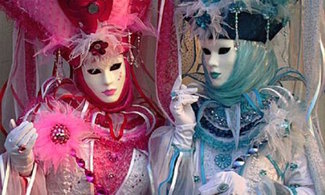 Long before the French Revolution, let alone the sexual one, Carnival was one occasion where, with the inevitable social barriers, the People could take liberties that were denied them for the rest of the year. So, as well as a Pagan festivity that preceded and dissolved into a Christian festivity, Carnival was also a moment for playfully discarding disinhibitions, for which the masks and costumes could consent to diminish not just the differences but also fears. Today it is no longer so. It remains a playful occasion, mainly dedicated to little children, with the occasional fancy ball, but the cape of Balanzone, the Pulcinella costume and the colours of Harlequin, have been covered up by today’s morality, often false and corrupt. And the confetti and streamers end up in my wine glass.
0 Comments
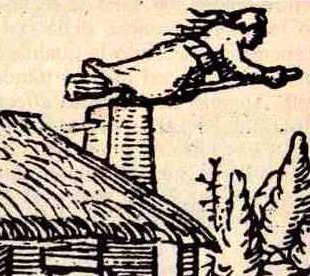 Everyone knows, the Befana doesn’t have much to do at all with the Magi Kings. An ancient ritual where an old woman brought the new year as a gift, prosperous and brimmingly fruitful and sweet. The ritual was to burn an effigy of the Befana on a bonfire and my Grandmother took the tradition really seriously! She would get us to prepare a perfect dummy-Befana with the offcuts from pruning the vines as an aid to ignition, and all us excited kids would watch her burn. The new wine would be tasted, we’d eat sweets and dried fruit, I adored dried figs filled with almonds. Our faces illuminated by the bonfire flames, Granddad, serious and concentrated, would spit a mouthful of wine on the embers, giving back to nature a drop of her fruit. Ancestral rites and joyous parties with a sense, a history and a moral. Today we often celebrate foolish idols, useful only to useless consumerism. 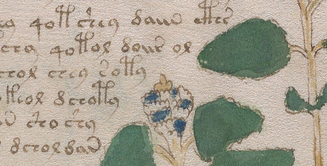 At the center of different Faiths, in variable measures more or less explicitly, the phenomenon of reincarnation, resurrection and immortality are evoked. Even in Atheist culture the concept of a better life, or in other words, a benefit of experience or care of the spirit, is an recurring element. The indisputable aspiring metaphor to this is wine. The grape is ‘reincarnated’ in wine. It maintains part of the essence of when it was fruit, and yet it becomes something else. Never in an identical fashion. Two grapes are never the same and neither is the wine that derives from them. However the two lives are directly related and will have characteristics dependant on each other. Humanity that drinks wine participates in this phenomenon. 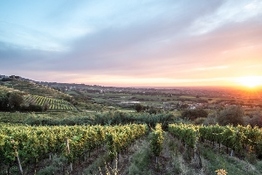 One of the incredible things about Italy is the way it can continue to surprise, how it can reserve those pockets of pleasure and wonder amongst the chaos where you least expect them. A bit like that tiny bubble of cold Frascati Spumante that bursts on the back of your hand as you reach for your glass, sending an orgasmic tingle up your warm arm. To me, the Principe Pallavicini Estate is a bit like that bubble. Every time I go through the gate on an anonymous bend just below Colonna, it feels like I’ve discovered my own time warp and I slip back through centuries to absolute peace. Here I find a perfume of green, of earth, of fruit and breezes coming from the sea to break through the haze around the walnut tree. How many centuries is hard to say. If I think of how long the fief has been in the Pallavicini family – that date 1670 that I can see impressed on the label of the Estate’s Malvasia Puntinata and Semillon Blend – I have images of fancy Baroque balls, of Cardinals in red, of an old Pope as cold as the marble that Bernini used to carve his Angels and pretty princesses in pearls entertaining guests beneath paintings of Rubens, Van Dyck, Il Grechetto et al in Scipione’s ex-Palace in Rome, itself built over the gutted ruins of Constantine’s baths. But when I look across to the ridge of the extinct volcanic crest, shielding Lake Albano and Diana’s mirror from my view, still dense with woods heavy with the scent of porcini, I can imagine a grinning, tipsy Bacchus, dancing around with his satyrs and nymphs, excited to have found his ideal vineyard, hundreds of thousands of years ago when time wasn’t measured. When I see the fragments of a by-way of the Roman Via Labicana, I’ve gone back to Roman legions marching off to plant vines in the south of France, ignoring the favour that they were doing to future Gauls. Or even to 496 BC and the splash of Latins and Etruscans being slayed by Roman allies Castor and Pollux, falling into Lake Regillus a couple of kilometres to the west. But then I catch a glimpse of the water tower on the nearest of our Castelli Romani towns, Colonna, and I can’t help thinking of Pietro born in ancient Frascati, Tusculum, crib of the Kings of Rome, medieval Popes and the most powerful nobility. Where Roman philosophers philosophised, their veritas was unravelled by rivers of local wines. In villas that were so decorative that they couldn’t survive Barbaric invasions, but left us with underground cisterns and aqueducts, where we now can age great reds or store Frascati DOCG’s. Still cool and damp as if the Roman fountains have only just finished draining their last bath. I look across to Monte Porzio, sitting on the hill in front of me and wonder whether Marcus Porcius Cato the elder realised when he wrote his treatise on agriculture (de Agricultura) or invented his wine press, how many tens upon tens of thousands of future farmers would count on his instructions. Or, if Cicero had any idea how looking for his villa on Tusculum would drive Napoleon’s brother Lucien so crazy. A red rose bush, at the head of a line of Malvasia del Lazio, evokes a puffy red shirt of the Garibaldini troops thinking they were doing Italy a favour by uniting the country, sitting in the Pallavicini Osteria awaiting their leader and Briganti crouching in ambush in the woods. The feel of the volcanic earth in my sandals, that familiar terroir that gives our Frascati wines its minerality and sapidity, and I think of Turner on his own Grand Tour wandering around in dusty boots with his sketch book and watercolours trying to capture my same feelings on a scrap of paper. Maybe Donna Maria Camilla would have commissioned him, to add to her already marvellous collection, or taken more lessons. The chatter of older ladies’ dialect echoes through the vines, sometimes their vulgar language surprises me, but makes me giggle, as if just because of their age they shouldn’t be thinking of sexy farmers. I think of their men going home after them, sweaty, tired and sleeplessly worried that the weather behaves, so as not to ruin a whole year’s toil. The agronomist chews the most precocious of the 20 types of grape, pulverising the seed between his teeth to see how long to wait till harvest. Grinning, satisfied with the sweet and acidic taste, he tosses back his white hair, wiping a drop of sweat from his wrinkled forehead at the same time. As he lunches on porchetta at the street kiosk with local labourers he declares proudly “what a great ‘annata’ it’s going to be this year, with 600,000 new offspring soon to be in the cellar”. Half of which are destined to grow up and become ambassadors to various corners of the World. Somehow all the pieces of the patchwork that has been the history of this place pours from the vats into the bottles, caressed along its way by the loving hands of Mauro the director, as if they were babies in need of a lullaby, but already great little Roman soldiers preparing to conquer. Pair any Pallavicini wine with your dreams. 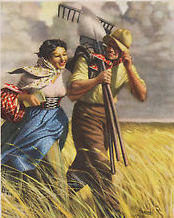 I’ll tell you this, but don’t get the wrong end of the stick, they weren’t poor, or needy. They were the people that reconstructed Italy after a terrible war and an even more terrible dictatorship. I’m talking about folk who defended taste and typicality…while modern progress and comfort advanced, they kept their country roots, (long before today’s consoling farmers’ markets and organic produce). These were the people that around our area, after the harvests, with good manners and dignity, would ask the land-owners if they could go ‘grazing’. I’ve met loads all over Italy, that picked corn after the combine harvesters had been through the fields, for their hens, so they would give lovely yolks, red like a sunset, and others that would collect shrivelled up, left-behind bunches of grapes for sharp but tasty wines. From north to south, crop to crop. The other day a couple knocked at the door of my farm, a lady and her husband, elderly but lively, cheery and hearty “can we collect the leftover olives, there's only a few but they're nice and juicy, over-looked by your pickers?” I could have hugged them, so tenaciously attached to their history, witnesses of a way of life that is simple but parsimonious and conscientious. In my positive answer there was gratitude towards these two survivors of compulsive consumerism, because from each of those olives a drop of a world that I loved would be squeezed. Here we are today looking and searching incessantly for something, without even remembering what it is exactly we are looking for. We should remember this real world fondly and take example. 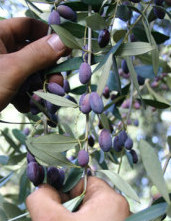 Don’t be daunted by the load, start. Keep your focus on what is in front of you, don’t fret about the other side of the tree until you get to it. Pull the branch to you and look closely to see how it is formed, giving it order will make the tree seem less tangled, tackle one small branch at a time. Harvest what is within reach, while you figure out how to get to the awkward branches. Make sure all your olives fall in the net. Put your ladder on firm ground. It’ll get easier as you go along, you’ll gradually find a method to simplify. Sometimes using your bare hands is easier and more gratifying. It’s not worth falling out of your ladder for just a few more olives. If you prune your trees, it’s easier to harvest, so cut away any straggling branches at the right time. If friends offer to help, accept. Mind you don’t poke out your eye out just for the sake of an olive. You can’t control the elements, so if it rains, pack up, do something else and wait for better weather. 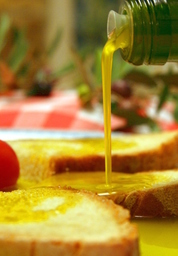 Not long now, in a few days’ time the first extra virgin olive oil of the Castelli Romani will begin to run from the cold presses. Typical olives, Rosicola, Carboncello, Leccino from century old olive trees will be harvested, I could almost say, fished, from the nets that they will be gathered in. The farmers will start to tell their tales of miraculous amounts of yield: “i got 12, I got 15, I got 18!!!” referring obviously to the litres per quintale of olives. A lovely green gold colour where polyphenols will release intense bouquets. This is the new oil. More or less spicy but always fragrant. A slice of rustic bread, toasted, and this excellent product drizzled generously on top. Our bruschetta is to die for, because I can’t think of other foods as good as this. In a blink of an eye winter will be here and red wine and roast chestnuts are waiting for me 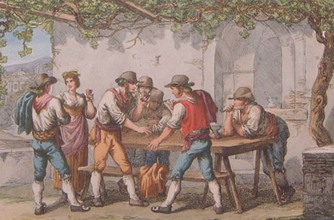 The players’ dress was usually a suit, a dark one normally used as Sunday best, jacket left off and shirt sleeves rolled up. With waistcoat. They played mostly in the afternoons before dinner. Not everyone played, but often young with old, on their own or in pairs. One hand behind their backs keeping count of the score and the second hand waving around in the air. The idea was to announce the number that would come up from the two players’ hands but all with intense rhythm, strategy, physical and mental strength, with no errors. There were real champions who would avoid encountering each other, except for playing on grand occasions. Their posture was similar to fencers, onlookers were competent and joyous and even though the women would chat amongst themselves they still made the most of the occasion to eye up the men. Frascati wine was there on the tables, an aid to concentration but also fuzzing the minds of those that had too much. The morra players in Frascati were handsome, some reckon that this is where the best-ever would meet up, laughter and sweat coloured those days and they waited for the evenings to make love. 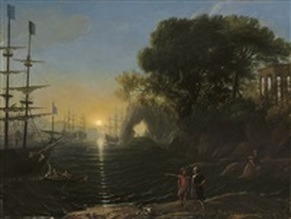 Where there are now, in this period of the year, alignments of umbrellas and sun-beds, set out like armed phalanxes defending Mare Nostrum just between Anzio and Nettuno, the Trojan veterans landed three thousand years ago. Aeneas and his people found refuge in a perfumed Mediterranean thicket, with the Tusculan Hills in the background and, further down the valley, the fatal Hills of the future Roman Empire. Whether this glorious history is true or fruit of the hired-pen of Virgil, looking for noble origins for the Gens Julia, fact remains that the Greek Culture bred rough and ready races of shepherds and farmers and every time I happily drink a Malvasia Puntinata, maybe even throwing my winning ‘briscola’ ace down on the the table, it brings a smile to my face. “There, Achilles , son of Peleus, take that! Hector is getting his own back. Landlord, open another bottle…it’s on them!” 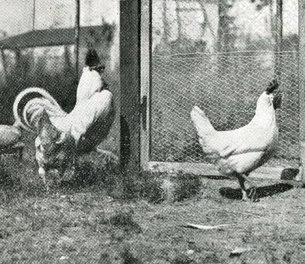 There is and old photograph, my mother, really young, keeps me happy by showing me the hens and cockerel in the pens, distracting me so I would eat. What I would give today for that lack of appetite ! That black and white of real Agfas, the pigs that grew fat along the side of the vineyards. That little lane just beyond the Roman well that took us to happy fields where we could play football matches that lasted for four or five hours, but today obscured by rooftops. Don’t think that I’m reminiscing the usual regrets of a world that is no more. I was on the scene of the crime, where my generation killed its best years: the hopes and the illusions. Twenty five years ago I planted some trees a long way away, that I haven’t ever seen since. With stripes of yellow and green I have constructed landscapes. I still do today, by choosing which direction I plant rows of vines, or which varieties or crops I grow. I have in my head, the places, just as they were, are and will be. That chicken coup, the warm egg cupped in my hand, carefully, so as not to let it break, the spoonful of my mothers feed, inspired me. I don’t care much for photographs, except for a few that I avoid ever looking at. |
Easyfrascatia group of people, that have lived and experienced the wonderful atmosphere of Frascati for many years, and now wish to share it with you. Archives
March 2023
Categories
All
|
- Home
- Best Frascati Wine Tours 2024
-
Cookery course
- A Unique Day at Lake Nemi
- Online Wine Tasting course
- Getting around
- Travel Agent Information
- Wine Glossary Italian-English
- Expat notice board
- Blog
- Markets
- Contact
- Frascati Cooking That's Amore
- Risorse per le Cantine e Service Providers di Frascati
- Free Castelli Romani Guide book download
- Free Foodie's Guide of local recipes and typical products
- L'Olivella Wine Estate Shop
- Grapes in Frascati wines
- Frascati Wine Consortium
- Vinalia Roman wine festivals
- Wine Spectator Tasting Tips
- Tours in Rome
- Home
- Best Frascati Wine Tours 2024
-
Cookery course
- A Unique Day at Lake Nemi
- Online Wine Tasting course
- Getting around
- Travel Agent Information
- Wine Glossary Italian-English
- Expat notice board
- Blog
- Markets
- Contact
- Frascati Cooking That's Amore
- Risorse per le Cantine e Service Providers di Frascati
- Free Castelli Romani Guide book download
- Free Foodie's Guide of local recipes and typical products
- L'Olivella Wine Estate Shop
- Grapes in Frascati wines
- Frascati Wine Consortium
- Vinalia Roman wine festivals
- Wine Spectator Tasting Tips
- Tours in Rome
|
Copyright © easyfrascati.com 2023 |

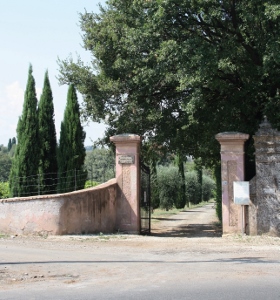
 RSS Feed
RSS Feed
